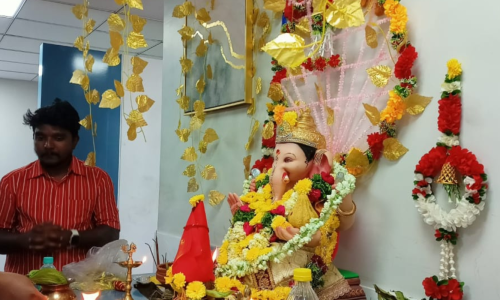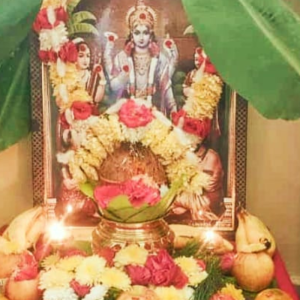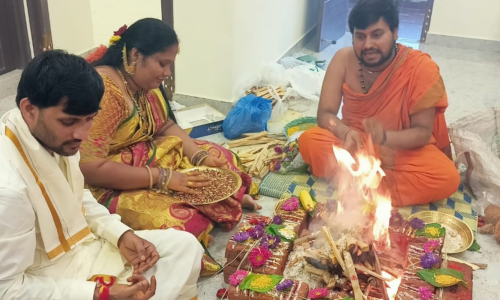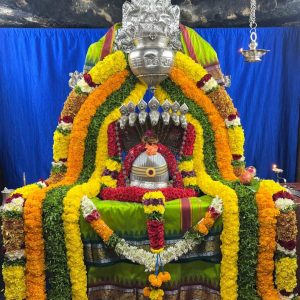Top 10 Most Auspicious Poojas for New Beginnings in Hinduism
In Hinduism, every new beginning is deeply spiritual. Whether it’s a new home, business, job, or phase in life—Hindus turn to divine rituals and poojas to invoke blessings, remove obstacles, and align with cosmic energies. Performing specific poojas helps purify the environment, bring positive vibrations, and ensure success in new ventures.
In this article, we’ll explore the top 10 most auspicious poojas for new beginnings, backed by tradition and spiritual significance. Whether you’re starting a family, moving into a new home, or launching a business, these rituals can set the foundation for peace, prosperity, and protection.
1. Ganapathi Pooja – The Obstacle Remover
Lord Ganesha is worshipped as Vighnaharta—the remover of obstacles. Any new venture or auspicious beginning traditionally starts with a Ganapathi Pooja. It ensures a smooth path ahead and wards off negativity.
When to Perform: Before housewarming, weddings, business launches, or educational endeavors.
Best Day: Chaturthi or any Monday/Tuesday.

2. Satyanarayan Pooja – For Prosperity and Harmony
This pooja is dedicated to Lord Vishnu, the preserver of the universe. It is ideal for families entering new homes, starting new jobs, or celebrating personal milestones.
When to Perform: After achieving or aiming for a significant life goal.
Best Day: Full Moon (Purnima).

3. Griha Pravesh Pooja – For New Homes
Moving into a new house? Griha Pravesh Pooja cleanses the space of negative energies and invites peace, wealth, and health into the household.
Includes: Vastu Shanti, Navagraha Shanti, and Lakshmi pooja.
Ideal Time: Consult a priest for an auspicious muhurat (date and time).

4. Lakshmi Pooja – For Wealth and Financial Growth
Before starting a new business or financial venture, seek the blessings of Goddess Lakshmi—the deity of wealth. Her pooja invites abundance and prosperity.
Best Time: Fridays or during Diwali (especially on Dhanteras or Kojagiri Purnima).
Commonly Combined With: Kubera Pooja.
5. Saraswati Pooja – For Knowledge and Learning
Perfect for students or professionals embarking on new learning journeys or academic pursuits. Also great for artists and writers beginning new projects.
Occasions: School admissions, college courses, creative work launches.
When: Vasant Panchami or Navratri.
6. Navagraha Pooja – For Cosmic Balance
Planets (grahas) play a vital role in our karmic path. Navagraha Pooja balances negative planetary influences and supports smooth transitions in life.
When Needed: When astrology suggests planetary afflictions.
Best Days: Saturdays or astrologically determined days.
7. Durga Pooja – For Strength and Protection
Starting something that requires courage or protection? Worship Goddess Durga to gain strength, victory, and to ward off evil.
When: During Navratri, Fridays, or Amavasya (New Moon).
Suitable For: Women-led ventures, legal matters, health battles.
8. Hanuman Pooja – For Bravery and Determination
Ideal for those starting tough physical journeys—military careers, sports, or overcoming personal challenges.
When: Tuesdays or Hanuman Jayanti.
Benefit: Boosts stamina, willpower, and wards off fear and black magic.
9. Rudra Abhishekam – For Transformation and New Beginnings
This powerful pooja dedicated to Lord Shiva is ideal for letting go of the past and initiating spiritual or personal transformation.
When: Mondays or during Pradosham.
Performed With: Offerings of milk, honey, ghee, and water on Shiva Linga.

10. Ayushya Homam – For Long Life and Health
Perfect for babies, elders, or individuals recovering from illness at the start of a new chapter. It invokes blessings of Lord Ayur Devata for health and longevity.
When: On birthdays or after major health recovery.
Performed By: Experienced priests with Vedic chanting.
Conclusion: Begin Your Journey with Divine Blessings
In Hinduism, a new beginning isn’t just a physical act—it’s a spiritual alignment with divine forces. Whether you’re opening a new shop, entering a new home, or starting a personal transformation journey, performing the right auspicious pooja aligns your energy with success, peace, and prosperity.
✨ Ready to start your new chapter with divine blessings?
📞 Consult your local priest or explore online pooja booking platforms today!
🕉️ May your new beginning be filled with light, growth, and grace.
FAQs About Auspicious Poojas in Hinduism json Copy Edit
Ganapathi Pooja is the most commonly performed for any new beginning, as Lord Ganesha is known to remove obstacles and bring success.
Griha Pravesh Pooja should be performed before moving into a new home, ideally during an auspicious time or muhurat determined by a priest.
Yes, most poojas can be performed at home with guidance from a priest or using pooja kits available online or from temples.
Consult local temples or use online platforms offering Vedic services. Priests can guide you on the appropriate muhurat and materials.


